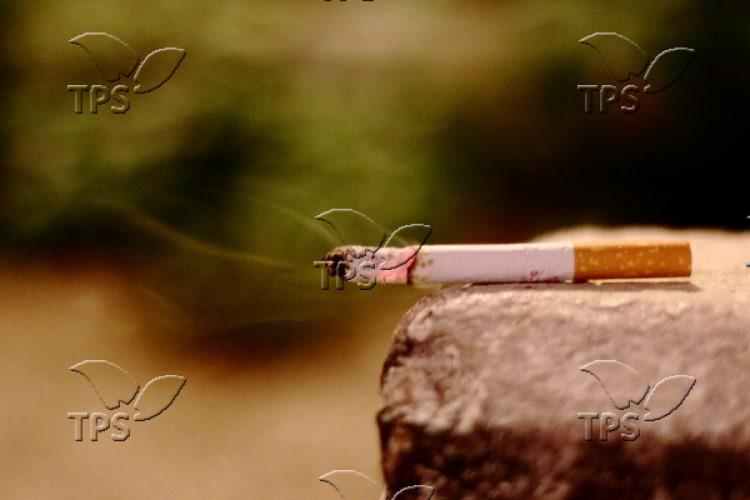Thirdhand Smoking More Dangerous to Children Than Previously Realized, Israeli Researchers Warn
Jerusalem, 3 April, 2023 (TPS) -- Many parents limit their cigarette smoking to a porch or by an open window in the belief that this protects children from the harmful effects of secondhand smoke. But a new study by Tel Aviv University finds that this behavior actually raises further dangers.
While parents think they are protecting their children from secondhand smoke — involuntarily inhaling someone else’s smoke — in fact, they are actually exposing children to the lesser-known dangers of thirdhand smoke.
Thirdhand smoke refers to the residual chemicals in a cigarette becoming absorbed into the home environment as nicotine and other cancer-causing substances embed as dust in soft surfaces like clothing, furniture, rugs, bedding and plush toys.
Studies show that thirdhand smoke particles can remain in soft objects for months after a smoker stops, and can be discharged into the air again at a later time.
In a study whose results were recently published in the peer-reviewed International Journal of Environmental Research and Public Health, the Tel Aviv University researchers tested for the presence of nicotine in the hair of children whose parents smoked. This provided an estimate of the amount of exposure to tobacco smoke over the past months.
It was noted that in the first stage of the study, which was published two years ago, the research team tested for the presence of hair nicotine among children of smoking parents – and then it was found that 70% of the children of smoking parents had measurable hair nicotine. The new findings examined data by the location of the smoking parent.
Among parents who restricted smoking to the porch or outside the house, the findings were worrisome — nicotine was found in the hair of six out of ten children tested. Despite being on an outdoor porch or by an open window, the smoke drifted back into the home, where the toxins settled in.
TAU Professor Leah Rosen, who led the study, explained, “It is known that smoking outside the house, even when the doors and windows are fully closed, does not completely protect children from exposure to tobacco smoke.”
She stressed that, “Children are likely to be directly exposed when they come out to the porch and someone is smoking, or when smoke drifts into the house.”
According to Dr. Rosen, the residual chemicals can be absorbed into a child’s body by swallowing or through the skin.
Moreover, “Smoking parents transmit the toxins from the tobacco smoke on their skin, on their hands, in their hair, on their clothing. Therefore it is recommended to brush teeth, wash hands and change clothes after smoking, before contact with children,” she warned.
“Smoking should be avoided within a range of at least 10 meters from the house. And in open areas, smoking should be kept to a distance of at least 10 meters away from children.”







